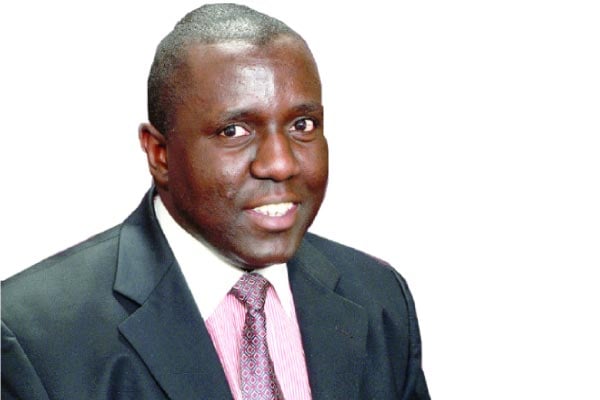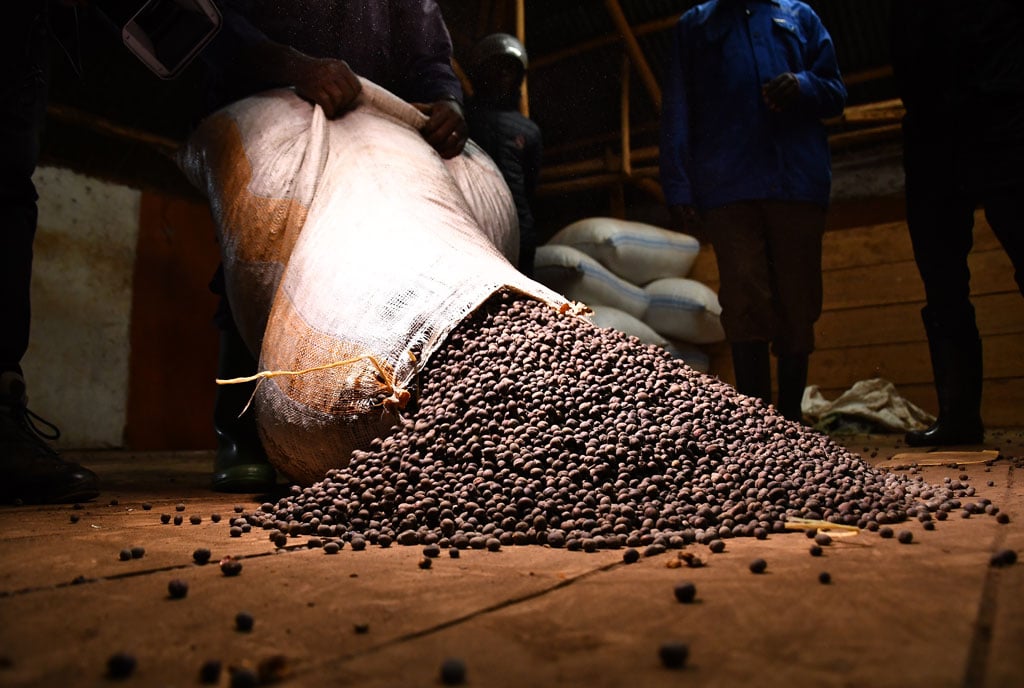
Mr Muniini K. Mulera
Dear Tingasiga:
The death of General Francis Omondi Ogolla, Kenya’s Chief of Defence Forces, has sent shockwaves through his country, with ripples that have extended to all who care about stability in our region.
His death in a helicopter crash on Thursday, April 18, along with Brigadier Swaleh Saidi, Colonel Duncan Keitany, Lieutenant Colonel David Sawe, Major George Benson Magondu, Captain Sorah Mohamed, Captain Hillary Litali, Senior Sergeant John Kinywa Mureithi, Sergeant Cliffonce Omondi and Sergeant Rose Nyawira, has brought tears, sadness and disruption to their immediate families and relatives, to whom we send our condolences.
Gen Ogolla’s death has also restarted a dark narrative that is as old as Independent Kenya. Within hours of Gen Ogolla’s death, the online social media were awash with allegations that he had been assassinated.
Seasoned politicians used diplomatic language to call for thorough investigations to “establish the truth and allay the suspicions”. Less restrained Kenyans made direct accusations against William Samoei Ruto himself, prompting the president to address the insinuations during his eulogy for his friend.
Happily, the deceased general’s oldest son categorically quashed the allegations during his speech at his father’s burial in Siaya, Nyanza, Kenya. He spoke with firmness that hopefully offered Kenyans reason to rethink their suspicions.
Justice demands that everyone, including President Ruto, be presumed innocent. Chances are very high that Gen Ogolla and his colleagues died in a genuine accident.
However, one easily understands the genesis of the suspicion of foul play. Kenya’s history of high-profile assassinations that began shortly after Independence in 1963 is a very dark blot that informs public reaction to sudden deaths of its prominent citizens.
We remember Mau Mau Field Marshall Marete Baimungi (January 26, 1965), Pio Gama Pinto (February 24, 1965), Thomas Joseph Odhiambo Mboya (July 5, 1969), Josiah Mwangi Kariuki (March 2, 1975), John Robert Ouko (on or about February 13, 1990), Father John Kaiser (August 23, 2000), Chris Odhiambo Mbai (September 14, 2003), Mugabe Were (January 29, 2008), George Muchai (February 7, 2015), and Chris Msando (July 29, 2017).
Likewise, the unresolved, probably non-accidental accidents that killed prominent Kenyan politicians make citizens distrust the State.
Kenyans are still waiting to know what happened to, among others, Clement Michael George Argwings Kodhek (January 29, 1969), Ronald Ngala (December 12, 1972), Alexander Kipsang Muge (August 14, 1990), and George Saitoti (June 10, 2012).
Some of the alleged murderers were arrested. A few were jailed. Some were reportedly hanged. But who ordered the assassinations? A man called Nahashon Isaac Njenga Njoroge, who was found guilty of killing Tom Mboya and was reportedly hanged for the crime, is said to have asked a key question after his arrest: “Why don’t you go after the big man?”
No big man was ever caught and punished for any of these assassinations. All the possible culprits took their secrets and guilt to their graves, some of them honoured as great Kenyan leaders and patriots. Those who knew or who may have known the truth remained silent, leaving Kenyans and the world to speculate, albeit without doubt that the assassinated men were not victims of robbers or random killings by deranged gunmen.
Even as the tears of most Kenyans dried, the pain of the dead men’s spouses and children never went away. That pain never goes away. While the “big men” behind the assassinations carried on with their lives of pomp, power, and prayer in their churches, the widows and orphans of the assassinated men paid a very heavy psychological price.
Of course, Kenya does not have a monopoly on unresolved political assassinations in East Africa.
Uganda has a very dark registry of assassinated politicians, police and military officers, and other prominent citizens. It is a very long list, starting with Brigadier Pierino Yere Okoya and Ms Anna Okoya (January 25, 1970) to Assistant Inspector General of Police Andrew Felix Kaweesi March 17, 2017), and Colonel Ibrahim Abiriga (June 8, 2018). That list included Benedicto Mugumba Kiwanuka (September 22, 1972), Andrew Lutakome Kayira (March 9, 1987), and many others whose deaths were ascribed to some of the rulers of the day, without benefit of impartial investigations.
The absence of such investigations, and the investigation reports that were never made public, created an atmosphere of suspicion, deep distrust, and unfair accusations against possibly innocent people.
What the “big men” who have ordered assassinations in Kenya and Uganda since the 1960s have achieved is impunity as a national tradition, where the real culprits are never guilty. There is a chronic atmosphere of rule by deception, and murder as a means of settling political debate.
Widows and orphans have been created because of a parent’s political or other public service engagement. They have not had closure. They cannot have closure in the absence of justice. Unremitting bitterness is their fate until their own deaths.
Chronic discontent of the governed, and fear of citizens by their governors nourish dictatorship, poor governance, and latent, unpredictable volcanic eruption. Here is the tragedy. Nearly all the people who orchestrated the assassinations in the 1960s are dead.
Time has taken care of that. The killers and the killed are reunited in death, neither one a winner of their vanity-driven contest for control of a world that continues its journey without them.
Likewise, the “big men” who ordain death today, will soon be gone. Our finite time on Earth is one unchangeable constant that does not recognise an “excellency,” an “honourable,” a general, or a royal majesty. Killing or torturing a fellow human being is not worth it.
None of this justifies evidence-free accusations that Gen. Ogolla was assassinated. The truth of what happened can only be established by a thorough and independent investigation by a team that is credible in the eyes of the families of the deceased and citizens of Kenya.
If I were President Ruto, I would request the leaders of Botswana, Senegal, Britain, Canada, the United States of America, and Singapore to assemble a team to investigate the cause of the crash in which Gen Ogolla and his colleagues died.
I would direct them to simultaneously present their final report to the government of Kenya and to the families of the deceased. The stakes are very high. The solution is the truth, gathered with transparent impartiality.
Muniini K. Mulera is Ugandan-Canadian social and political observer.
[email protected]





